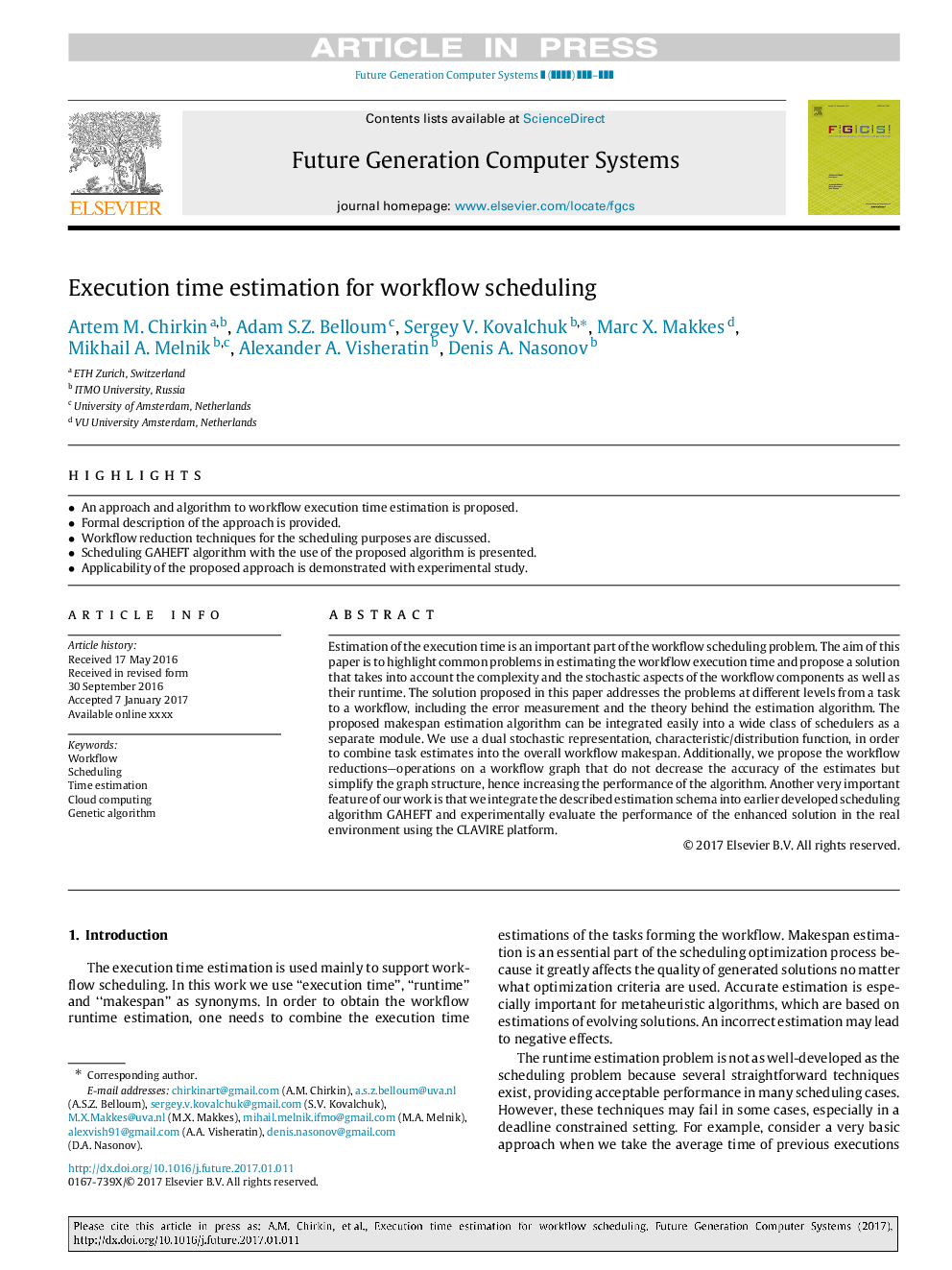| Article ID | Journal | Published Year | Pages | File Type |
|---|---|---|---|---|
| 4950425 | Future Generation Computer Systems | 2017 | 12 Pages |
Abstract
Estimation of the execution time is an important part of the workflow scheduling problem. The aim of this paper is to highlight common problems in estimating the workflow execution time and propose a solution that takes into account the complexity and the stochastic aspects of the workflow components as well as their runtime. The solution proposed in this paper addresses the problems at different levels from a task to a workflow, including the error measurement and the theory behind the estimation algorithm. The proposed makespan estimation algorithm can be integrated easily into a wide class of schedulers as a separate module. We use a dual stochastic representation, characteristic/distribution function, in order to combine task estimates into the overall workflow makespan. Additionally, we propose the workflow reductions-operations on a workflow graph that do not decrease the accuracy of the estimates but simplify the graph structure, hence increasing the performance of the algorithm. Another very important feature of our work is that we integrate the described estimation schema into earlier developed scheduling algorithm GAHEFT and experimentally evaluate the performance of the enhanced solution in the real environment using the CLAVIRE platform.
Related Topics
Physical Sciences and Engineering
Computer Science
Computational Theory and Mathematics
Authors
Artem M. Chirkin, Adam S.Z. Belloum, Sergey V. Kovalchuk, Marc X. Makkes, Mikhail A. Melnik, Alexander A. Visheratin, Denis A. Nasonov,
